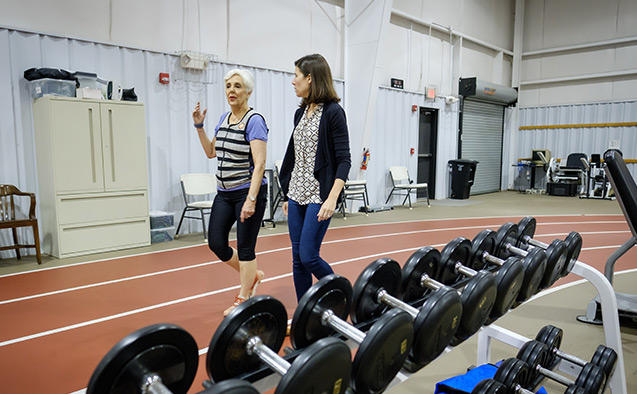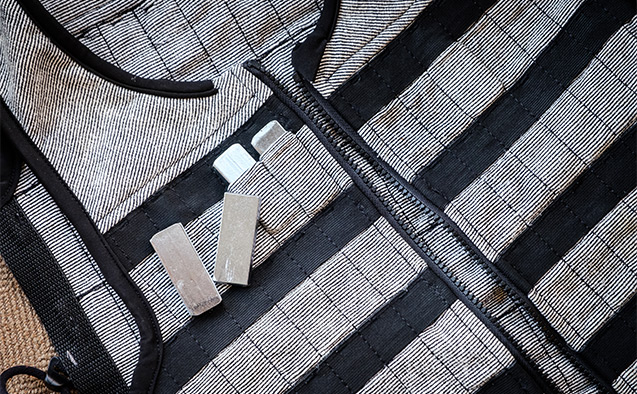Can weighted vests help maintain bone health when older adults slim down?

Losing weight can be a tricky balance of risks and benefits for older adults: You want to shed fat to improve overall health, but preserve muscle and bone, which reduces risk of future injury.
With a new, $2.9 million grant from the National Institute on Aging, researchers at Wake Forest University will test whether wearing a weighted vest can take the place of traditional resistance training to help maintain bone density and quality in older adults with obesity who are trying to lose weight. Previous research by this group showed that seniors who lifted weights while restricting calories lost less muscle and had stronger bones.
But several barriers keep people from lifting weights, including the cost of a gym membership, transportation to the gym, and even inability to perform the amount and intensity of exercise needed to preserve muscle and bone.
“I would love it if people would do regular resistance training, but they just don’t,” said Kristen Beavers, principal investigator on this study, “Incorporating Nutrition, Vests, Education and Strength Training in Bone Health. This is a more passive, but potentially as effective, alternative.”
In the pilot study that preceded INVEST, Wake Forest researchers asked participants to wear a weighted vest for 10 hours/day during a six-month weight loss program, with an average of 6.5 hours/day of wear time reported.
The vest, which weighs two pounds, can be worn under clothes and allows full range of motion. As pilot participants lost weight, the researchers added the amount of weight lost – in two-ounce increments – to the vest.
Bones grow when there is weight or “load” put on them and will bulk up when you put on a few extra pounds. On the flip side, bones will lose density when you lose weight – and, to make matters worse, older adults typically don’t regain bone density even if they regain their weight.
“With the weighted vest, you’re keeping yourself at an equal load while you lose weight,” Beavers said. “We know that not all, but a lot, of bone loss that occurs when you drop pounds is because of this ‘unloading effect.’”

In the pilot, people who wore the vest reduced hip bone loss dramatically.
The new study runs through April 2024 and will follow 192 adults age 60-85 in a randomized, controlled trial. The weighted vest used in the study retails for about $150 and includes weighted blocks about the size of a domino tile that fit into little pockets all over the vest.
Study participants will be divided into three groups: (1) weight loss program alone; (2) weight loss plus weighted vest; or (3) weight loss plus structured resistance training. These interventions will begin in spring 2020.
Safe weight loss for older adults has been a focus of multiple studies at Wake Forest in recent years. Some of the results:
- One-size-fits-all weight loss doesn’t benefit all older adults, August 2019
- New study shows more protein and fewer calories help older people lose weight safely, February 2019
- Bone loss still likely in dieting seniors, despite strength training, August 2018
- When it comes to weight loss in overweight and obese adults with knee osteoarthritis, more is better, June 2018
- Lose fat, preserve muscle: Weight training beats cardio for older adults, October 2017
For information about participating in the study, call 336-758-3795.
Categories: Research & Discovery
Wake Forest News
336.758.5237
media@wfu.edu
Meet the News Team
Headlines
Wake Forest in the News
Wake Forest regularly appears in media outlets around the world.





